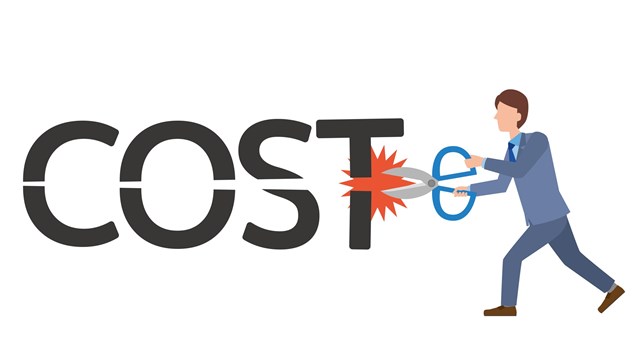
Even before the economic meltdown and the media storm swirling around the thievery of money men like Bernie Madoff, financial mismanagement and fraud have been destructive problems for many co-op and condo owners.
A co-op or condo is a major investment and for many people—it is their largest investment. Residents expect board members and other building management to take their fiduciary responsibility seriously and act in good faith as the caretakers of those investments. While the vast majority of managers and board members want nothing but the best for their communities, not all management personnel are beyond reproach. Because of this, residents need to know their risks for being fleeced, and how to manage those risks through checks and balances that will ensure transparency and prevent fraud.
Spotting Fraud
Certain things will make a building or HOA more vulnerable to fraud, such as a concentration of too much power in too few hands. When the board is controlled by a small minority, crooked activity is not only likelier to happen, it’s easier for thieves to get away with their crimes.
Along the same lines, if only one person is involved in approving expenditures, paying bills, cutting checks for vendor services and other such transactions, it means the building is only a person away from things going amiss. An obvious way to separate tasks and ensure some accountability is by hiring a property manager to handle operations. Management companies separate tasks through their own checks and balances systems. They’re also staffed with trained and licensed people, working for a firm that’s bonded and insured.
Jules Frankel, CPA, a shareholder with certified public accounting and consulting firm Wilkin & Guttenplan P.C., with offices in East Brunswick and New York City, urges boards to adhere to this concept of delegating duties to multiple individuals—a concept known as 'segregation of duties' in the accounting world—to lessen the chances of fraudulent activity.
“Here’s the concept of segregation of duties: Do not have one person do it all because then there are no checks and balances on that person,” Frankel says. With all power residing in one person, it’s kind of a dictatorship. “Rather,” he continues, “all board members should be aware of what’s going on and all have consensus.”
A lack of segregation of management duties is very dangerous, Frankel says. Rather than enabling one employee to control the books, have one person prepare a vendor payment, another authorize it, and yet another person sign the payment. A clear separation of duties should apply to all building and HOA accounts, however small they might be.
Spotting the Red Flags
Preventing fraud is partly about recognizing when something appears suspicious. Things that count as fraud in the legal sense aren’t always strictly cash-related. For example, board members cannot vote to approve contracts with anybody they know personally without disclosing that relationship to the board ahead of time. Property managers can’t funnel projects to a contractor with whom they have a discreet agreement to trade projects for free remodeling work at their house (bid rigging and kickbacks are said to be notorious in the world of co-ops and condos), experts say.
Even seemingly insignificant things like over-ordering supplies can be a symptom of fraudulent activity—someone could be selling them on the side for profit. A board member or manager might suspect that the building’s finances are being mishandled by noticing some obvious warning signs.
“If you see that the management company is habitually late in providing you with your statements—most management companies do it monthly, some do it quarterly—[that’s a red flag],” says Stuart Halper, co-founder of Impact Real Estate Management, Inc., a property management firm that services New York and New Jersey. “Often it’s a red flag that somebody is trying to perpetuate a fraud and doesn’t want to get caught. I’ve been involved in a number of court cases with this very situation.”
Another telltale sign can be when there’s an obvious lack of transparency with the management team. If actions are being taken on behalf of the property, which require votes of the board but board meetings aren’t being held, residents should dig deeper to see what’s what. Or if one particular contractor keeps lucking out and getting all of the big construction jobs that are done for the community, without an open bidding process, residents should speak up and find out why.
Checks and Balances
“Being on a board means you have a fiduciary responsibility,” Frankel says. “It doesn’t mean you have to manage the place—that’s the management company’s responsibility—but it does mean you have a responsibility to know what’s going on. Who’s making the deposits? Who’s endorsing the checks? Who is keeping the books and records and tracking receivables? Who’s tracking vendors? Who’s approving invoices?”
Often, the property management company will be the signer on checks from building operating accounts. This is risky, experts say, and they suggest at least two members have signatures on every association bank account, not just the operating account. Furthermore, the pros suggest dual signatures on every check.
Even small accounts must be watched. Building-issued credit cards can be abused by employees who add a purchase or two for their own use each time they fill up the company truck. Those small purchases amount to big losses.
In addition to ensuring that the maintenance credit card account never exceeds a predefined spending limit, board members should check purchases made on the card to see that it’s all for the building. Someone should be reviewing the bank statements for the credit card and comparing those statements with receipts to make sure they match.
When it comes to financial transactions within the building community, plastic and checks rule. A building should never accept cash payments. When cash is on hand, there’s too much opportunity for criminal activity.
An obvious way to provide transparency in the finances is to have them audited, at least yearly, Halper says.
Perhaps even more important, board members should read monthly financial statements and pay attention to what is being done with the building’s finances. If given the chance, an unscrupulous person will figure out ways to make the ledger appear balanced, when the building really is falling behind due to theft.
According to the pros, this monthly financial report should contain a balance sheet with financial highlights, an income statement with a comparison of the actual to the budget, a receivable report that shows who owes the association, an accounts payable report that shows who the association owes money to, a cash disbursement listing of all checks disbursed during the month, details of expenses where the checks were allocated to, copies of all paid invoices, new contract proposals and most importantly, a bank reconciliation.
Reviewing financial statements is an important task that board members should never fail to complete. And doing so in a timely manner is half the trick. In this case, “timely” means within 10 days of the statement being issued. Simply put, the more days that pass between statements being reviewed by board members—the more time thieves have to get away with their crimes.
A quick review of the report isn't sufficient—analyzing it is imperative. If anything looks even the slightest bit odd, the board's accountant should be consulted immediately.
Deceit or Incompetence?
Being on-guard starts with knowing what to be on the lookout for, but, the distinctions aren’t as clearly etched as they might appear. After all, what is the legal difference between fraud and incompetence?
“Fraud is intentional conduct, either a misrepresentation or something that is sought to deceive someone, to achieve such improper goal, knowing that it is going to cause harm to someone else,” Scott Piekarsky, the managing attorney of Scott Piekarsky & Associates, LLC in Wykoff, explains. “Incompetence is when you just don't have the experience or the knowledge, or you do but you are working pretty sloppily by not dotting your “i's” and crossing your “t's.” In most cases, it's usually pretty easy to determine the difference between just sheer negligence or incompetence and fraud,” he says.
Regular monthly meetings of the board should occur and be open to residents, and that’s when business decisions for the community should be made. Bids for contracts above a set monetary amount (sometimes outlined in the building’s governing documents), must be reviewed and voted on after an open bid process.
When Fraud is Found
If evidence of financial mishandling is uncovered in a building, steps to rectify the situation must be taken immediately, Halper says.
“The first thing a board needs to do is take control of their bank account and stop the bleeding. They have to institute complete control immediately. That means taking the checkbook away and taking the monies away from the managing agent,” he says.
Next, it's time to bring in the pros to help a board build a case against the perpetrator(s).
“If they have legal counsel [the board] should call them immediately, because the people that are most experienced in dealing with that type of thing are attorneys,” Piekarsky says. “There are very critical issues of confidentiality and privilege. You want to make sure someone doesn't just blurt out [a fraud claim] to the community without knowing all the facts. If you don't have your facts straight you could end up with slander and libel types of problems,” he warns. “You also want to preserve your evidence in such a way so that when you go to pursue your civil or criminal case, you have the proper proofs, because if you tip somebody off too early they can modify and destroy records, so you want to make sure you secure your proof and records and lock it down. Once that person finds out, they may seek to destroy evidence.”
A claim should also be filed with the board’s or association's insurance company. If a board or an association has a policy protecting them from employee dishonesty, it might be able to file a claim and recover some of those losses.
Co-op/condo fraud is a state crime in New Jersey, is considered larceny and theft and is punishable with prison time. The course of legal action an association should take depends on factors like the dollar amount that was stolen, and what kind of restitution they seek.
News headlines around the country abound with cases involving property management companies and vendors rigging bids and embezzling funds. One Ocean Township, New Jersey property manager received a six-year jail sentence in 2012 for embezzling more than $400,000 in association fees and another condo treasurer was arrested and charged after he allegedly took $60,000 from his Dover Township HOA.
“Fraud is both civil and criminal. On the criminal side it could simply be notifying the police department and filing a complaint in municipal court,” Piekarsky says. “On another level, depending upon the dollar amount, it may mean going to the county prosecutor. In criminal court, you can seek restitution, but it may be a slow process. Civil court will be quicker and you can get money quicker through a civil judgment as opposed to waiting for the criminal process. Unless of course, it's not a big case and it goes to municipal court, you may be able to get restitution pretty quickly. Often times in criminal court, there are plea deals where you don't have to try your case and as part of the plea deal, they agree to restitution and pay it back.”
There's no such thing as being too careful when it comes to scrutinizing financial records. A board shouldn't be afraid to ask its various advisers for assistance, no matter how seemingly small the question might be. A special audit of the community’s finances might even be needed to determine if something is truly amiss. It could be a small price to pay to avoid a huge headache.
Jonathan Barnes is a freelance writer who regularly contributes to The New Jersey Cooperator. Editorial assistant Enjolie Esteve contributed to this article.






Leave a Comment